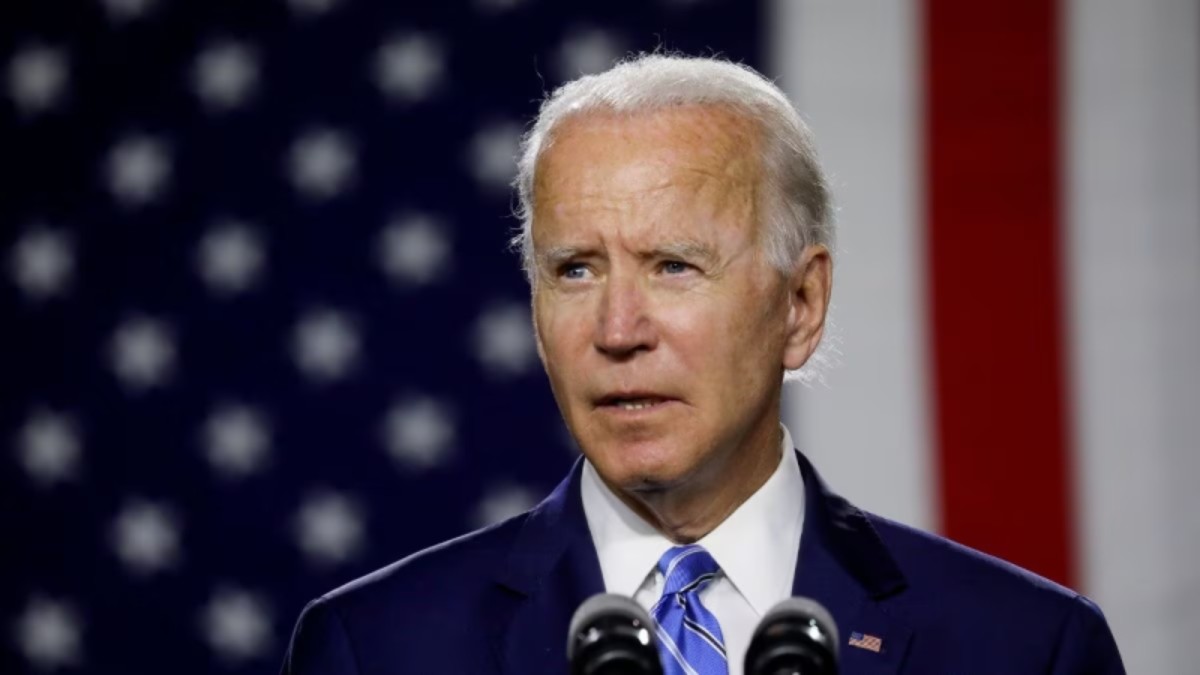Politics
Executive Order to Regulate Artificial Intelligence Signed by US President Joe Biden; Here are the Key Components

An executive order to control generative AI and protect the public has been signed by US President Joe Biden. The goal of the order is to improve safety and prevent workers and consumers from risks associated with AI. Safety, security, privacy, equity, consumer protection, worker support, innovation, and responsible government use are among the goals it sets for AI development. Over the next year, the initiatives will be gradually implemented: comprehensive reporting mandates within a year, and minor safety improvements in the next ninety days. The directive also calls for the development of privacy-preserving strategies, best practices for content authentication, and standards to guard against the misuse of AI.
The first of its kind in U.S. government action, President Joe Biden unveiled a new executive order on artificial intelligence that calls for new safety assessments, equity and civil rights guidelines, and research on the effects of AI on the labor market.
Although Congress has worked to learn more about the technology to draft new laws, and law enforcement agencies have warned that they are prepared to apply current law to abuses of AI, the executive order may have a more immediate effect. It “has the force of law,” as all executive orders do, according to a senior administration official who talked with reporters over the phone on Sunday.
The executive order’s main elements are divided into eight sections by the White House:
- Establishing new safety and security guidelines for AI, such as mandating that certain AI companies provide the federal government with safety test results, ordering the Commerce Department to develop guidelines for AI watermarking, and establishing a cybersecurity program that can produce AI tools that assist in locating vulnerabilities in important software.
- Preserving consumer privacy, including developing standards that organizations can use to assess AI privacy practices.
- Promoting equity and civil rights by advising federal contractors and landlords on how to prevent AI algorithms from escalating discriminatory practices and developing best practices regarding the proper application of AI in the legal system, such as in risk assessments, sentencing, and crime forecasting.
- Directing the Department of Health and Human Services to establish a program to assess potentially harmful AI-related healthcare practices and develop resources on how educators can use AI tools responsibly to protect consumers overall.
- Providing a report on the possible effects of AI on the labor market and researching the ways in which the federal government could assist workers who are affected by a labor market disruption in order to support workers.
- Increasing funding for AI research in fields like climate change and updating the requirements for highly qualified foreign workers with essential skills to remain in the United States will foster innovation and competition.
- Collaborating with global partners to put AI standards into practice globally.
- Establishing policies for the use and acquisition of AI by federal agencies and expediting the government’s hiring of personnel with the necessary expertise.
White House Deputy Chief of Staff Bruce Reed said in a statement that the order is “the strongest set of actions any government in the world has ever taken on AI safety, security, and trust.”
Building on the White House’s prior voluntary commitments obtained from top AI companies, this is the first significant and legally binding government action pertaining to the technology. It also occurs ahead of the U.K.-hosted summit on AI safety.
The senior administration official stated that while voluntary AI safety commitments have been implemented by 15 significant American technology companies, it “is not enough,” and that Monday’s executive order is a step toward real regulation for the advancement of the technology.
“The President, several months ago, directed his team to pull every lever, and that’s what this order does: bringing the power of the federal government to bear in a wide range of areas to manage AI’s risk and harness its benefits,” the official said.
According to President Biden’s executive order, big companies must notify the US government of the results of their safety testing of AI systems prior to their official release. Additionally, it gives top priority to the National Institute of Standards and Technology’s creation of guidelines for AI “red-teaming,” or stress-testing system defenses and potential issues. Watermarking AI-generated content will follow standards developed by the Department of Commerce.
Large AI system training data is also covered by the order, which also mandates that agencies assess how they gather and use commercially available data—including data they buy from data brokers—especially when it contains personal identifiers.
Additionally, the Biden administration is strengthening the AI labor force. According to the senior administration official, candidates with experience in artificial intelligence (AI) can search for relevant federal job openings on AI.gov starting on Monday.
Regarding a timeline for the actions required by the executive order, an administration official stated on Sunday that a 90-day turnaround is the “most aggressive” timing for certain safety and security aspects of the order, while a year or longer may be required for other aspects.
Building on earlier AI actions
The executive order issued on Monday is the result of several recent initiatives by the White House to establish forums for debating suggested guidelines and the rate at which AI is developing.
Following ChatGPT’s viral launch in November 2022, which, according to a UBS study, became the fastest-growing consumer app ever in just two months, the broad use of generative AI has already sparked debates in the courts, public outcry, and inquiries from lawmakers. For example, ChatGPT was criticized for toxic speech just days after Microsoft integrated it into its Bing search engine, and well-known AI image generators have drawn criticism for promoting stereotypes and racial bias.
During the call with reporters on Sunday, an administration official stated that President Biden’s executive order requires the Department of Justice and other federal offices to create guidelines for “investigating and prosecuting civil rights violations related to AI.”
“The President’s executive order requires a clear guidance must be provided to landlords, federal benefits programs, and federal contractors to keep AI algorithms from being used to exacerbate discrimination,” the official added.
The White House issued a challenge in August to thousands of hackers and security researchers to outsmart the leading generative AI models from companies such as OpenAI, Google, Microsoft, Nvidia, and Meta. The biggest hacking conference in the world, DEF CON, included the competition.
“It is accurate to call this the first-ever public assessment of multiple LLMs,” a representative for the White House Office of Science and Technology Policy told at the time.
The competition came after the White House met with representatives from seven of the leading artificial intelligence companies in July: Microsoft, Amazon, Anthropic, Inflection, Meta, Alphabet, and OpenAI. After agreeing to a series of voluntary commitments regarding the development of AI, each company departed the meeting with a better understanding of the risks associated with AI for society, the ability for outside experts to evaluate tools before their public release, and the ability for third parties to test systems for vulnerabilities, as in the August DEF CON competition.
-

 Travel4 weeks ago
Travel4 weeks agoBwindi’s Gorilla Tourism: Saving Wildlife, Empowering Communities
-

 Education4 weeks ago
Education4 weeks agoJoseph Curran: Using Legal Writing and Advocacy to Simplify Complex Issues for Clients
-

 Tech4 weeks ago
Tech4 weeks agoGoogle Offers New Travel-related Features To Search And Launches Its AI “Flight Deals” Tool Around The World
-

 Business4 weeks ago
Business4 weeks agoStop the Bleeding: How Unanswered Comments Increase Your CAC
-

 Cryptocurrency2 weeks ago
Cryptocurrency2 weeks agoRami Beracha Asks, Can Israel Become A Global Leader In Blockchain Innovation?
-

 Tech3 weeks ago
Tech3 weeks agoAdsPower Promo Code for 50% Off – Ultimate Guide to AdsPower Benefits (Referral Code Included)
-

 Education2 weeks ago
Education2 weeks agoForged in Fire: Nicholas Lawless Unveils Lawless Leadership – The Model Built for a World That Traditional Leadership Can’t Survive
-

 Business2 weeks ago
Business2 weeks agoOPO Group LTD Strengthens Its Global Footprint With Expanding Offices and a Modernized Trading Ecosystem


















